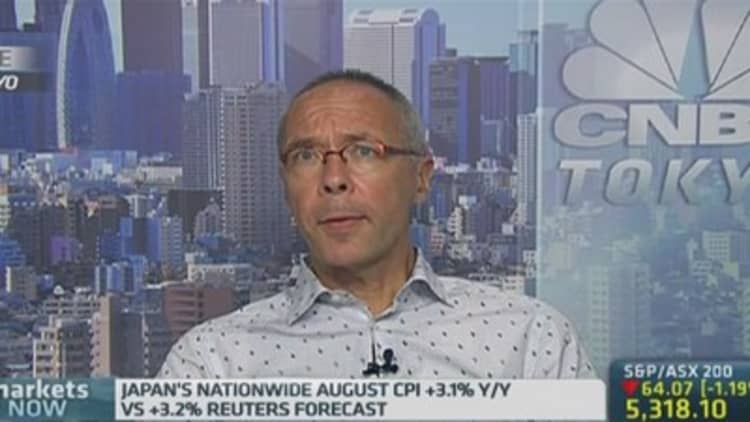Seniority and lifelong employment are synonymous with Japan's employment system, but Hitachi could change that.
The consumer electronics giant may implement a merit-based salary system for managers next April, according to local broadcaster NHK, which economists say could trigger long-awaited structural changes in Japan's labor market.
Read MoreAbenomics approaches a moment of reckoning
Hitachi's decision is major and directly addresses Prime Minister Shinzo Abe's call for companies to increase wages above the government's 2 percent inflation goal, said Junko Nishioka, chief Japan economist at RBS Securities Japan.
By implementing a merit-pay system, companies will prove they are willing to embrace the kind of reform Abe has called, said RBS' Nishioka. The Prime Minister has aggressively urged firms to revamp corporate culture by hiring more women and foreigners, which could be the next step for firms, she said.
Read MoreJapanese women fight 'maternity harassment'
Wages in the world's third-largest economy are based on a seniority system where salaries typically increase based on the number of years employees serve. Shushin-koyo, or 'lifetime employment,' has been common since the 1920s, but calls for change are getting louder due to a rapidly aging population and shrinking workforce.

A boost for Abenomics
Hitachi first announced intentions to abolish seniority-based pay hikes in 2003, but didn't follow through. Change is more likely under Abe's current administration as higher wages are integral to his effort to beat deflation and boost spending.
Read MoreJapan's pace of inflation slows in August
Data suggests his efforts are paying off: regular pay rose 0.7 percent in July from the year before, the second consecutive month of increases; June saw the first rise in over two years.
Although employees will welcome performance-based compensation, it won't be enough to revitalize corporate governance in the drastic manner Abe is hoping for, Takuji Okubo, principal and chief economist at Japan Macro Advisors, said.
"There has to be more incentives for managers to care about share price and interest of equity rather than just expanding their power or wages," Okubo said.
Read MoreMrs.Watanabe jumps on yen-selling bandwagon
Still, the majority opinion is positive. If Hitachi – the embodiment of Japan Inc – goes through with the move, others could follow suit. Japan Post said it would introduce performance-linked pay this year, while Sony is expected to implement the system next year.
"Increasing competitiveness is one of the slogans on Abenomics, so I image that other companies will also introduce the new merit system," Kohei Iwahara, economist at Natixis Japan Securities, told CNBC.

